Revalidation Day!
The Pleasure and Pain of Greek Banks
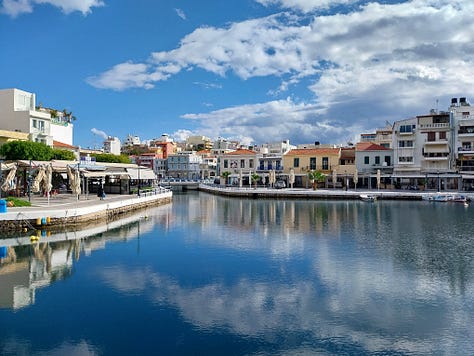
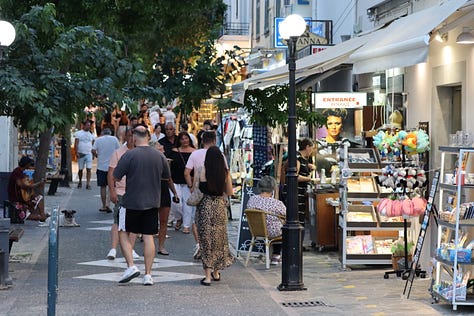

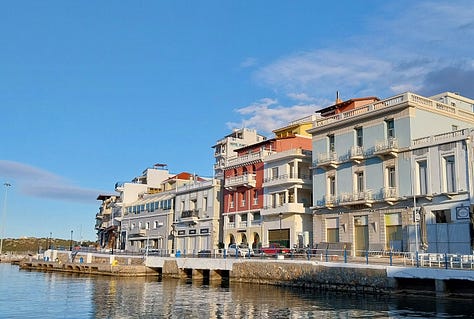
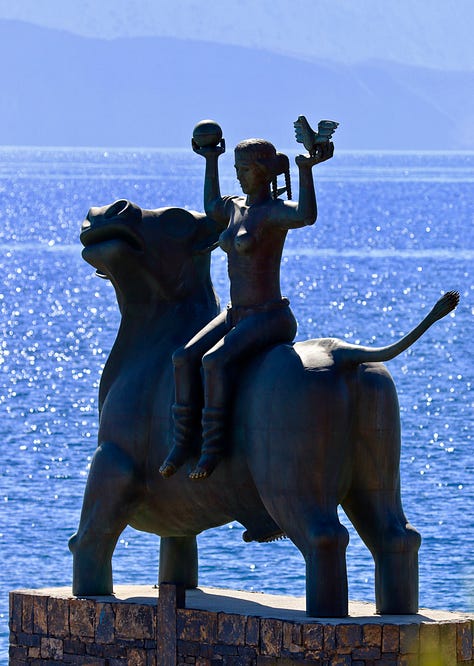
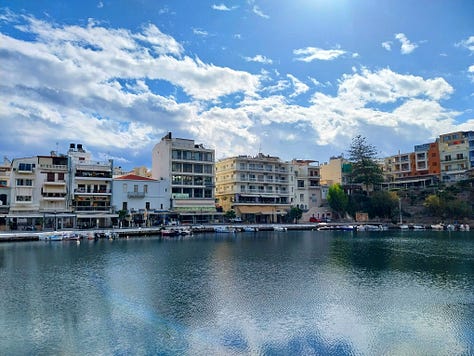
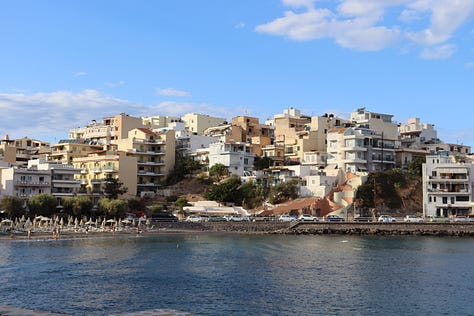
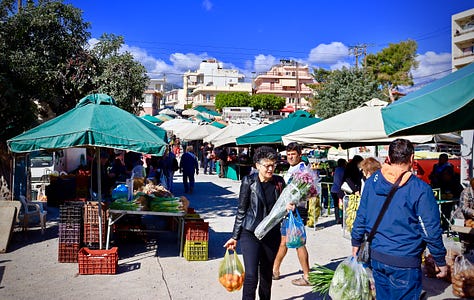
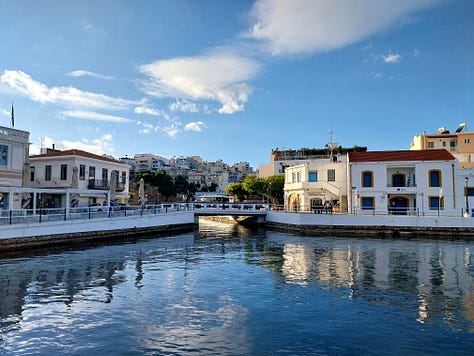
At the bank in Agios Nikolaos, the face of the lady at the front desk falls as she sees me enter from the security ‘air lock’ doors. It’s not that I’m a difficult customer – but she knows, as I do not yet, that her colleague, who usually deals with verifying the documents of foreign residents, is no longer available to see me today.
I’ve met this lady before, and she speaks some English, but when she attempts to explain the situation, it’s as if her face has subtitles. I can already see the calculations she’s making about whether I’ll complain - how much of her time I might take – if she’s going to be able to get rid of me... She has another non-Greek man sitting across the desk to her right, and from his tight scowl and thrusting chin, it looks as though he’s already been here a while: There’s nothing like a trip to a Greek bank to push frustration levels to the max. My heart plummets at the thought I may have to rearrange this meeting – but then I decide. Today, I’m not going anywhere. Today, I’m going to get this done.
In my favour, I do have an appointment, and I soon learn that my rival does not. I booked it weeks ago, after being informed by email that it’s time to validate all my documents once again. Now Brits are ‘third country citizens’ (non-EU members), this must be done at my bank every two years to comply with their rules and Greek legislation. I must show the bank proof of my identity, my address and phone numbers in the UK and Greece. I must provide proof of my income, my occupation and give my employer’s address. I must confirm my tax numbers, verify my tax status – and prove that I owe nothing in both countries. My papers must be sourced from my Greek and English accountants, from the tax office, my work, and from my utility and mobile phone companies – and every document must be original or officially apostilled and stamped. Sending this paperwork electronically is not an option, because my signature will be needed on several declarations and must be witnessed. Only presenting everything in person - in this airless, painfully fluorescent-lit, box of a bank - will do.
Just arranging this meeting was a labyrinthine process that involved queuing at three different desks on two different floors - behind other customers gossiping excitedly with the staff about all their family’s recent news and successes. The process took just over an hour, but even that is the shortest I have ever been inside the building – apart from the time I arrived on the wrong day! “You’re never done?” my husband had said incredulously on that occasion, when I arrived back at the coffee shop where he was waiting only ten minutes after I’d left him. He roared with laughter when I told him I’d got it wrong – then stopped laughing when he realised we’d be repeating the whole trip again the next day.
While I was waiting to book this slot, I realised that I knew one of the bank employees working at the desk beside the queue – a young man who had helped Craig and me open our new accounts in a mammoth first meeting nine years earlier. It had been his first week in the job, and within a fortnight, he was temporarily laid off when the Greek/EU debt crisis closed all the country’s banks at once. When I said hello and reminded him about our introduction, he opened his arms wide, beaming, and told me that he was now in charge of decisions about business loans. As we shared our news, the two men behind me in the queue joined our conversation. They were still laughing and joking together when I finally made it to the appointment booking desk.
Back on the ground floor today, with my unsmiling, front-desk-lady, I decide to switch from answering her questions in English, to answering in Greek. I can’t yet pretend that it will be a perfectly fluent conversation, but I have ‘revised’ especially for this meeting. For a moment she looks startled, shoots an appraising look at the man waiting, and then motions me to sit down. My rival stares at me accusingly, shifting in his seat and mutters under his breath as I pull out my sheaf of papers. The lady’s face brightens as she spots that I have yellow Post-it notes stuck to the front of every document, and that each bears a ‘headline’, handwritten in Greek, about what the paperwork shows…
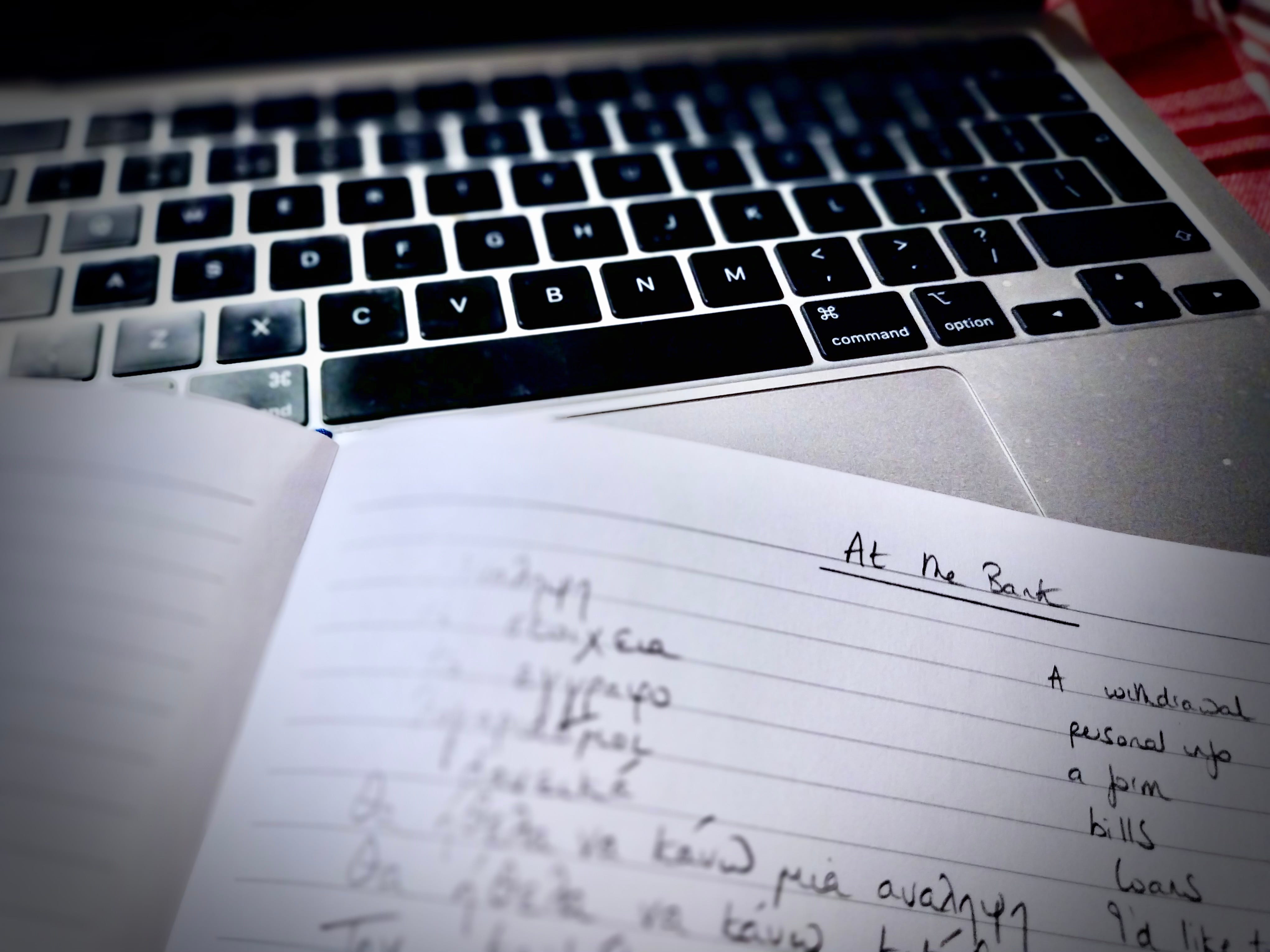
And now we’re getting down to business, she begins to do what she usually does with customers. She chats away, asking about where I live in Kritsá, what my house is like, how much it cost, whether I am married – do I have children? This is the meat and potatoes of my Greek conversation classes, and as she checks through the papers, ticking off the bank’s list of requirements - scanning and printing pages from time to time on the machine behind her - everything begins to flow beautifully. In my head, I am already thanking my teacher, Maria, for the idiomatic phrases she throws into our chats. I can remark on the cooler weather and say that I’m dressed ‘like an onion’ (in layers), and that on Christmas day I ‘made a terrace’ (I ate far too much). When we get stuck on a banking term I don’t recognise, she says we must ‘Googlaro’, and we pull out our phones simultaneously to open Google translate…
Suddenly, my new friend spots someone through the window of the bank – a woman with a child wearing pink bunny ears on her woolly hat. She says it’s her daughter - her sister babysits during the day - would I mind if she pops out to say hello? I laugh and tell her it’s fine, while the man next to me throws up his hands and exhales dramatically. His muttering becomes something that sounds like swearing in a language I can’t quite place. When she returns a good ten minutes later, she has a coffee in her hand – and she’s full of stories about her daughter’s morning at the playground. Her phone comes out again to show me photos of family occasions – and I reciprocate with pictures of my grandchildren.
“Yiayiá?” She shakes her head kindly in disbelief, checking that I’ve used the right word for ‘grandchildren’, not ‘children’ – then says I’m too ‘little’ (young) - as she coos over how blonde the children are - how blue-eyed - how beautiful!
By the time the paperwork is finally complete, we’re on first name terms - old friends. “Thank you for learning my language,” she says brightly in English as I collect up documents and tuck my phone back into my bag.
As I push the button for the first door on the bank’s security ‘airlock’ to exit, I glance back - reflecting. Maybe we should all love the time-consuming bureaucracy of banks a little more? Putting profits before people in the rush to electronic banking also means losing the social element - the pleasure of human contact. And maybe this love of social exchange is something uniquely Greek and mentally healthy - like the extra chair left in the street for people to join their neighbours and gossip, instead of staying behind closed doors, watching TV?
For now, that expression of long-suffering politeness is back on my new friend’s face, as she turns towards the man and folds her arms. “OK – we start again...”
Outside, I check my watch and realise the appointment has taken 57 minutes! I call Craig in triumph. “Guess what! We have a record. I’m done!”
If you enjoyed Claire in Crete, you may also like my short story, Ann Hilder - a mystery inspired by the work of the artist LS Lowry and his shadowy muse. Ann Hilder is available as a paperback and ebook on Amazon at https://amzn.eu/d/bMidwmh
New ‘Claire In Crete’ posts are available here every two weeks, and subscription is free. This post is public, so please feel free to share it too.


I loved how she thanked you for learning her language. Even when we’re not fluent, trying means something, and more often than not, leaves everyone laughing. In your case, that would be everyone other than your rival!!!
Well done for charming the lady, I have failed numerous times and eventually made my appointment at Neapoli because I wasn’t brave enough to go again!! My Greek needs attention!
🩷🩷
And I too want to know all about the teapot!